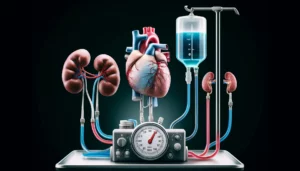
Activated Clotting Time Value as an Independent Predictor of Postoperative Bleeding and Transfusion
This study examines the incidence and predictors of bleeding and thrombosis in patients treated with extracorporeal cardiopulmonary resuscitation (ECPR) after out-of-hospital cardiac arrest due to ventricular tachycardia/fibrillation. Among 200 patients, 67.5% experienced major bleeding, primarily from CPR-related trauma. Decreased fibrinogen levels were linked to bleeding, but bleeding did not significantly affect in-hospital mortality. Thrombosis occurred in 23.5% of patients and was not associated with in-hospital death.










